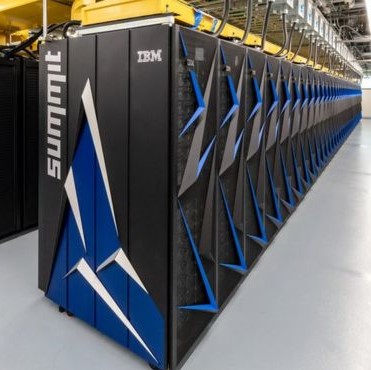America’s New Supercomputer Summit Is Built for AI and Advanced Research

How fast is Summit, the U.S. Department of Energy’s new 200-petaflop supercomputer? If every person on Earth completed one calculation per second, it would take 305 days to do what Summit can do in one second.
Located at the Oak Ridge National Laboratory (ORNL) in Oak Ridge, Tennessee, Summit is eight times more powerful than America’s current top-ranked system, the Titan. Built for artificial intelligence and high performance computing (HPC), Summit will provide ORNL researchers and others with the incredible computing power to solve problems in human health, high-energy physics, climate science, advanced materials discovery, and other areas.
Summit’s “smart” architecture supports expanding applications in data science and artificial intellience (AI). Here are some fast facts:
How fast is it? Summit can perform 200 quadrillion calculations per second. Peak performance is 200,000 trillion calculations per second or 200 petaflops. For certain scientific applications, Summit should be capable of more than three billion-billion mixed precision calculations per second.
Storage capacity? Summit’s file system can store 250 petabytes of data, or the equivalent of 74 years of high-definition video.
How big is it? At over 340 tons, Summit’s cabinets, file system, and overhead infrastructure weigh more than a large commercial aircraft. Occupying 5,600 square feet of floor space, Summit could fill two tennis courts.
How hot is this machine? More than 4,000 gallons of water pump through Summit’s cooling system every minute, carrying away about 13 megawatts of heat.
Summit was built by IBM, employs NVIDIA Volta GPU architecture, and runs Red Hat Enterprise Linux (RHEL) version 7.4. The intent is that Summit will be open to select projects in late 2018. In 2019, access will start becoming available to research teams from academia, government labs, and industry selected through DOE’s Innovative and Novel Computational Impact on Theory and Experiment (INCITE) Program, which supports computationally intensive, large-scale research projects with potential impact at the national and global scale.

